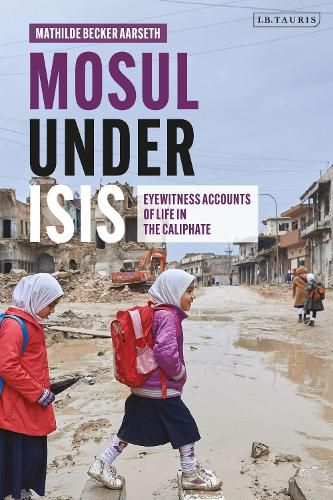Readings Newsletter
Become a Readings Member to make your shopping experience even easier.
Sign in or sign up for free!
You’re not far away from qualifying for FREE standard shipping within Australia
You’ve qualified for FREE standard shipping within Australia
The cart is loading…






The Islamic State of Iraq and Syria (ISIS) ruled Mosul from 2014-2017 in accordance with its extremist interpretation of sharia. But beyond what is known about ISIS governance in the city from the group’s own materials, very little is understood about the reality of its rule, or reasons for its failure, from those who actually lived under it.
This book reveals what was going on inside ISIS institutions based on accounts from the civilians themselves. Focusing on ISIS governance of education, healthcare and policing, the interviewees include: teachers who were forced to teach the group’s new curriculum; professors who organized secret classes in private; doctors who took direct orders from ISIS leaders and worked in their headquarters; bureaucratic staff who worked for ISIS. These accounts provide unique insight into the lived realities in the controlled territories and reveal how the terrorist group balanced their commitment to Islamist ideology with the practical challenges of state building. Moving beyond the simplistic dichotomy of civilians as either passive victims or ISIS supporters, Mathilde Becker Aarseth highlights here those people who actively resisted or affected the way in which ISIS ruled. The book invites readers to understand civilians’ complex relationship to the extremist group in the context of fragmented state power and a city torn apart by the occupation.
$9.00 standard shipping within Australia
FREE standard shipping within Australia for orders over $100.00
Express & International shipping calculated at checkout
The Islamic State of Iraq and Syria (ISIS) ruled Mosul from 2014-2017 in accordance with its extremist interpretation of sharia. But beyond what is known about ISIS governance in the city from the group’s own materials, very little is understood about the reality of its rule, or reasons for its failure, from those who actually lived under it.
This book reveals what was going on inside ISIS institutions based on accounts from the civilians themselves. Focusing on ISIS governance of education, healthcare and policing, the interviewees include: teachers who were forced to teach the group’s new curriculum; professors who organized secret classes in private; doctors who took direct orders from ISIS leaders and worked in their headquarters; bureaucratic staff who worked for ISIS. These accounts provide unique insight into the lived realities in the controlled territories and reveal how the terrorist group balanced their commitment to Islamist ideology with the practical challenges of state building. Moving beyond the simplistic dichotomy of civilians as either passive victims or ISIS supporters, Mathilde Becker Aarseth highlights here those people who actively resisted or affected the way in which ISIS ruled. The book invites readers to understand civilians’ complex relationship to the extremist group in the context of fragmented state power and a city torn apart by the occupation.